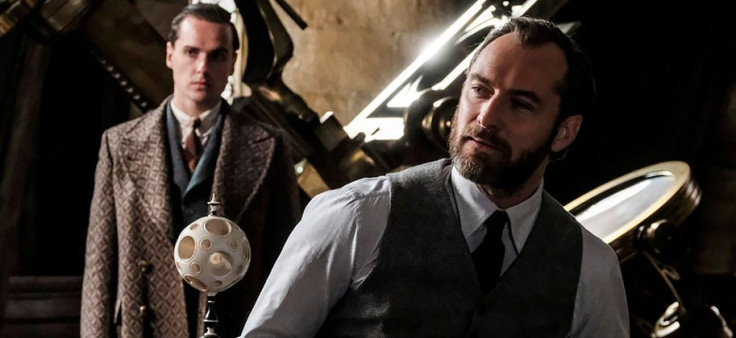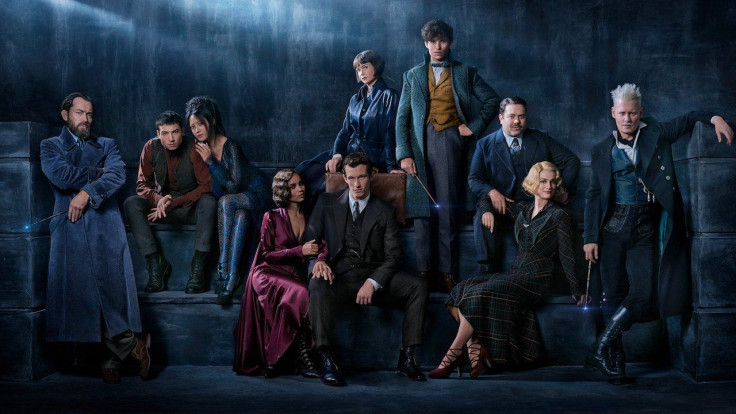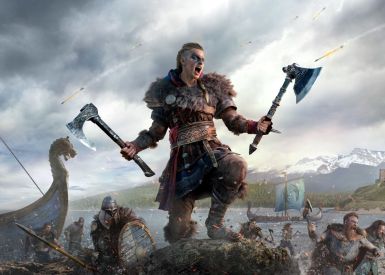Fantastic Beasts: The Crimes of Grindelwald director David Yates told Entertainment Weekly that, while Johnny Depp as the dark magician Grindelwald and Jude Law as Albus Dumbledore “make an incredible pairing,” in the upcoming sequel to Fantastic Beasts And Where To Find Them, their romantic history won’t be involved. At least, “not explicitly.”
“But I think all the fans are aware of that. He had a very intense relationship with Grindelwald when they were young men. They fell in love with each other’s ideas, and ideology and each other,” Yates added.
The backlash has been swift and universal, with multiple outlets criticizing Fantastic Beasts 2 for apparent cowardice, aligning the upcoming sequel with other movies that promised gay or bisexual characters, including Thor: Ragnarok and the live-action Beauty and the Beast, only to shy away from any on-screen indication of their sexuality. Even Star Trek Beyond, the latest entry in a franchise whose identity is built around breaking new ground and confronting prejudices, could only manage a chaste hug for their newly homosexual Sulu.
But there’s a key difference between Fantastic Beasts: The Crimes of Grindelwald and other examples of big budget cold feet: the dramatic centrality of Dumbledore and Grindelwald’s former romantic relationship. This is far beyond a case of “representation matters,” the slogan that’s come to define the demand for more racial minorities and LGBTQ characters in movies.
People against on-screen depictions of homosexuality, who don’t want to look like people against on-screen depictions of homosexuality, have a common rebuttal: “but it’s not relevant to the story.” This, of course, is never applied to Captain America taking a smooch break in Civil War or literally any other “hero gets the girl” ending of nearly every other movie ever made, including the first Fantastic Beasts and its tearful dockside goodbyes between Newt Scamander (Eddie Redmayne) and Porpentina Goldstein (Katherine Waterston).
And it doesn’t apply here.
Dumbledore and Grindelwald are the world’s two most powerful magicians on the opposite sides of a war. Could there be a more dramatically relevant data point than that they were once in love? Their homosexuality is at the very heart of the conflict’s drama.

Treating Dumbledore and Grindelwald’s romantic history as nothing more than an easter egg for fans is a terrible choice. It looks cynical, as if J.K. Rowling asserts Dumbledore’s homosexuality only when it’s praiseworthy and easy, and omits the most relevant emotional underpinnings in what is otherwise a sterile, worldwide war between abstract powers. It would be like putting on Romeo and Juliet with just the conflict between the Montagues and Capulets.
Excising Dumbledore and Grindelwald’s romantic past is not just failing gay and bisexual fans, not just studio cowardice in the face of international markets, but a supremely narrative failing. Which, considering the abysmal first Fantastic Beasts, maybe isn’t so surprising.
Fantastic Beasts: The Crimes of Grindelwald is looking like an excellent test case for how much a major franchise can count on their audience to be locked-in for the duration. The anger over casting Johnny Depp, alleged domestic abuser, as Grindelwald could at least be said to be irrelevant to the on-screen narrative of Fantastic Beasts 2 (as could Yates’ astoundingly callous comparison of Depp to a victim of abuse). But there’s no such distance available to this latest decision, which eschews the most potent, dramatic conflict available for reasons, we’re told, having nothing to do with chickenshittery.



















